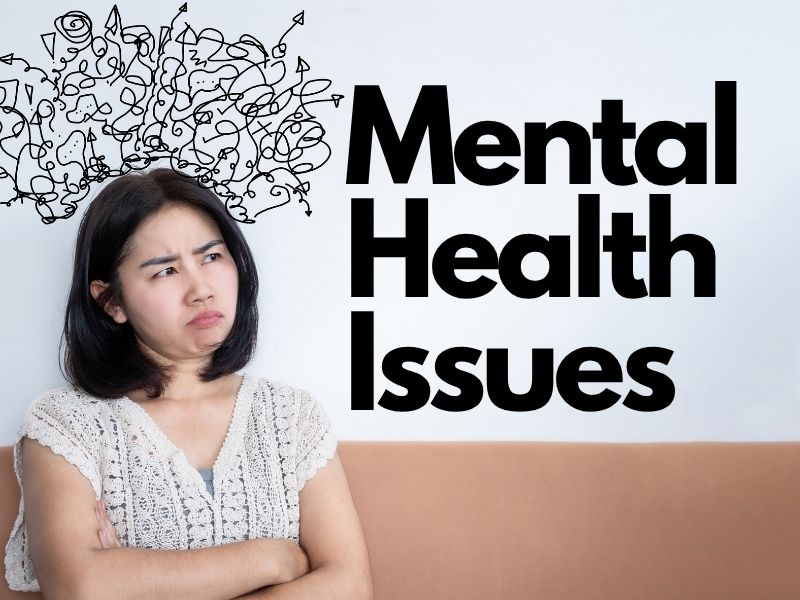Introduction

Teenager face many changes. These are the physical, emotional, and social tests. And sometimes, that change makes them crazy. If you are a parent, a teacher, or a friend, it’s essential to know how to help a Teenager who is struggling. In this blog, we will discuss how you can help a Teenager struggling with mental health. Understandable and straightforward language will be used to support any teenager in need.
What is Mental Health in a Teenager?
Mental health problems occur when someone is experiencing trouble with their thoughts, feelings, or behavior. Teens with mental health issues can be very sad, scared, or angry. They might have a hard time enjoying life or getting along with other people.
The following are typical mental health concerns that teens experience:
Depression
Anxiety
Eating disorders
ADHD (Attention-Deficit/Hyperactivity Disorder).2. Articles on the interaction between ADHD, CD, and polysubstance use.
Self-harm
Substance abuse
Warning Signs a Teenager May Be in Trouble
It ain’t necessarily so that one can tell if a teen has mental health issues. But there are some red flags to look out for:
Oversleeping or sleep deprivation
Increased or decreased appetite
Not wanting to do things they used to enjoy
Creating distance with family and friends
Doing poorly in school
Acting out or becoming easily irritated
Referencing the experience of hopelessness
Speaking of self-harm
If you experience one or more of these signs, don’t look the other way.
Why Early Help for Teenager Mental Health Matters
Mental health problems can spiral downward over time. It can make a difference to Get Help early. It has the potential to halt issues from progressing. Teenagers who receive assistance are more likely to show improvement.
How to Help a Teenager With Mental Health Issues
How to Listen to a Teenager Without Judgment
Teens need somebody to listen to them. Let them speak. Don’t interrupt. Don’t judge. Don’t try to fix everything at once. Simply listen and indicate that you care.
Say things like:
“I’m here for you.”
“You’re not alone.”
“It’s OK to feel this way.”
Help a Teenager by Keeping Communication Open
Talk often. Ask how they are doing. Be kind and patient. So, make sure they feel comfortable talking to you. If they don’t want to talk to them, don’t force them. Just tell them you’re there when they are ready.
When to Seek Professional Help for a Teenager
If the teenager has signs of mental illness, seek a mental health professional. If you need advice, a doctor, therapist, or school counselor can assist. They know what is happening and what treatment is required.
Encourage Healthy Habits in Teenagers
That applies to mental health, too. Encourage your teen to:
Eat healthy food
Get enough sleep
Exercise daily
Don’t get on phones or screens at night
Spend time outside
These little tweaks may help brighten their mood.
Be There for Them
Teenagers need to know that it does not stand alone. Spend time with them. Do things they enjoy. Be patient and loving.
Don’t say things like:
“Snap out of it.”
“It’s just a phase.”
“You’re just being dramatic.”
Instead, say:
“Let’s talk more about the way you’re feeling.”
“I believe you.”
“I want to help.”
Learn About Mental Health
The more you know, the more you can do. Read books or websites about teen mental health. Consult with doctors or teachers. The more you know, the less worried you’ll feel, and the more prepared you’ll be to support.
Stay Involved at School
Collaborate with teachers and school counselors. They can give you a sense of how the teenager is faring in class. They may also recommend support programs.
Set a Good Example
Demonstrate to your teenager to make their mental health a priority. Take breaks when stressed. Talk about your feelings. Be open about emotions. This is to help kids see that it’s OK to ask for Help.
Watch for Warning Signs
Some adolescents may also attempt to conceal their true feelings. “Keep looking for changes in behavior. If your teenager talks about hurting themselves or someone else, get Help immediately. Ring your doctor or emergency line.
Build a Support System
Remind teenagers that it’s OK to get Help from others. This could include:
Family members
Friends
Teachers
Coaches
Therapists
It’s helpful to have more than one person to talk to.
Summary: Making Teens Feel Better
Mental health is essential at any age. Teens go through a lot. Some individuals will feel it more intensely than others. “They can feel better with love, support, and the right Help.
Supporting your teen involves listening, showing up, and getting Help when you need It. You are not alone. Many are willing to care and help.
So often, it is not easy to help teenagers who struggle with mental health. But your Help can make all the difference.
